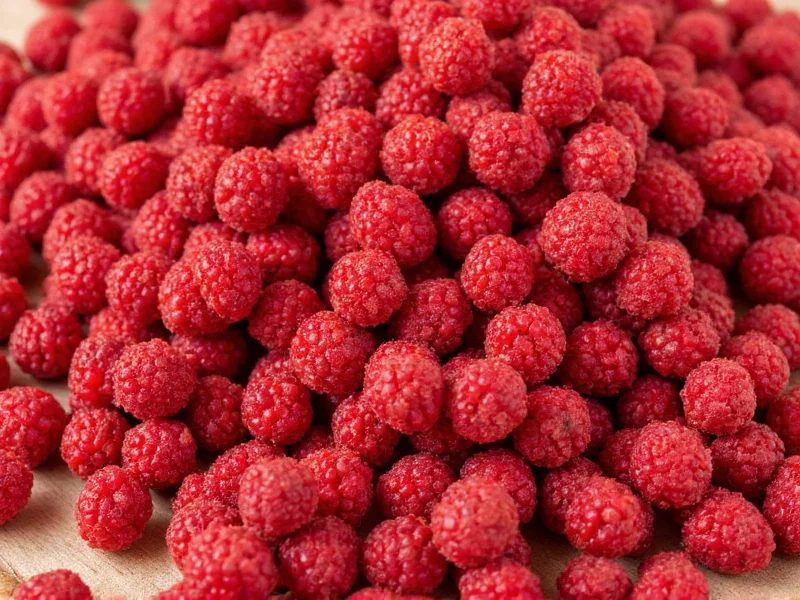When you're preparing a traditional Middle Eastern dish like fattoush salad or muhammara and discover you've run out of sumac, knowing reliable sumac substitute options becomes essential. Sumac, with its vibrant red color and unique tart, lemony flavor, plays a crucial role in many regional recipes. Understanding what can replace sumac effectively ensures your culinary creations maintain authentic taste profiles even when this specific spice isn't accessible.
Understanding Sumac and Why Substitutes Are Needed
Sumac is a deep red spice made from ground dried berries of the Rhus coriaria plant. Its distinctive sour yet slightly sweet flavor makes it irreplaceable in many Mediterranean and Middle Eastern dishes. However, sumac can be difficult to find in standard grocery stores, particularly outside urban areas, and some people may need alternatives due to allergies or dietary restrictions.
When searching for what can I use instead of sumac spice, it's important to recognize that no single substitute perfectly replicates sumac's complex flavor profile. The ideal replacement depends on your specific recipe and what flavor elements you need to preserve—primarily the tartness or the earthy notes.
Top Sumac Substitutes for Various Culinary Applications
Lemon Juice and Paprika Combination
This is the most accessible sumac substitute for recipes requiring both tartness and color. Mix equal parts fresh lemon juice and paprika (preferably sweet paprika) to approximate sumac's flavor and appearance. For every teaspoon of sumac called for, use ½ teaspoon lemon juice plus ½ teaspoon paprika.
This combination works exceptionally well in salad dressings and as a finishing spice. When exploring how to replace sumac in Middle Eastern cooking, this option provides the necessary acidity while maintaining visual appeal.
Za'atar Spice Blend
Za'atar, a Middle Eastern spice blend containing sumac, thyme, sesame seeds, and oregano, serves as an excellent substitute when sumac is unavailable. Use za'atar at a 2:1 ratio (two parts za'atar for every one part sumac) since it contains sumac as one component among others.
This substitute works particularly well in dishes where sumac is used as a seasoning rather than the primary flavor component. For those seeking sumac replacement for fattoush salad, za'atar provides complementary flavors while maintaining regional authenticity.
Amchoor (Dried Mango Powder)
Popular in Indian cuisine, amchoor offers a tangy, citrus-like flavor that makes it a suitable sumac alternative without lemon. Use amchoor at a 1:1 ratio to replace sumac in dry rubs and spice blends.
While amchoor lacks sumac's deep red color, it provides similar tartness without the citrus notes of lemon-based substitutes. This makes it ideal for recipes where lemon flavor would be inappropriate but tartness is required.
Vinegar-Based Alternatives
For recipes requiring liquid acidity, a combination of apple cider vinegar or white wine vinegar with a pinch of paprika can effectively substitute sumac. Use ¼ teaspoon vinegar plus a small pinch of paprika for every ½ teaspoon of sumac.
This option works well in marinades and dressings where the liquid content won't disrupt the recipe's balance. When considering taste of sumac substitute options, vinegar-based alternatives provide the necessary acidity but lack sumac's subtle fruity notes.
Pomegranate Molasses
In dishes where sumac is used for both tartness and color, pomegranate molasses offers a complex sweet-tart flavor profile. Dilute with water (1:1 ratio) and use sparingly, as it's significantly sweeter than sumac.
This substitute shines in recipes like muhammara (red pepper dip) where the fruity notes complement other ingredients. For those exploring homemade sumac substitute recipes, pomegranate molasses provides depth but requires careful balancing of sweetness.
| Substitute | Flavor Profile | Best Used In | Ratio to Sumac |
|---|---|---|---|
| Lemon juice + paprika | Tangy, citrusy, slightly sweet | Salads, dressings, grilled meats | ½ tsp lemon juice + ½ tsp paprika per tsp sumac |
| Za'atar | Earthy, herbal, moderately tangy | Breads, dips, roasted vegetables | 2 tsp za'atar per tsp sumac |
| Amchoor | Tart, citrusy, no color | Dry rubs, spice blends, stews | 1:1 replacement |
| Vinegar + paprika | Sharp acidity, mild earthiness | Marinades, sauces, dressings | ¼ tsp vinegar + pinch paprika per ½ tsp sumac |
| Pomegranate molasses | Sweet-tart, fruity, complex | Dips, glazes, Middle Eastern specialties | Diluted 1:1, use sparingly |
How to Choose the Right Sumac Substitute
Selecting the best substitute depends on your specific recipe requirements:
- For color preservation: Lemon juice with paprika or pomegranate molasses maintain the visual appeal sumac provides
- For pure tartness: Amchoor or vinegar-based options deliver acidity without additional flavor notes
- For complex flavor profiles: Za'atar adds complementary herbal notes while providing moderate tartness
- For finishing dishes: Lemon-paprika blend works best as a final sprinkle before serving
Practical Tips for Using Sumac Substitutes
When implementing your sumac substitute for recipes, consider these professional tips:
- Always add substitutes gradually, tasting as you go—overcompensating for tartness is common
- For dry rubs, mix substitutes with other spices first to ensure even distribution
- When replacing sumac in dressings, add liquid substitutes to the oil component before emulsifying
- Remember that substitutes won't provide sumac's slight astringency, which helps cut through rich flavors
- Store unused portions of homemade substitutes in airtight containers for future use
Avoiding Common Substitution Mistakes
Many home cooks make these errors when seeking what can I use instead of sumac spice:
- Using straight lemon juice without balancing with paprika (results in overwhelming citrus flavor)
- Substituting with regular vinegar without dilution (creates harsh acidity)
- Ignoring the visual component sumac provides in dishes like fattoush salad
- Using too much za'atar, which overwhelms with thyme flavor
- Not adjusting other seasonings when adding substitutes (particularly salt)











 浙公网安备
33010002000092号
浙公网安备
33010002000092号 浙B2-20120091-4
浙B2-20120091-4